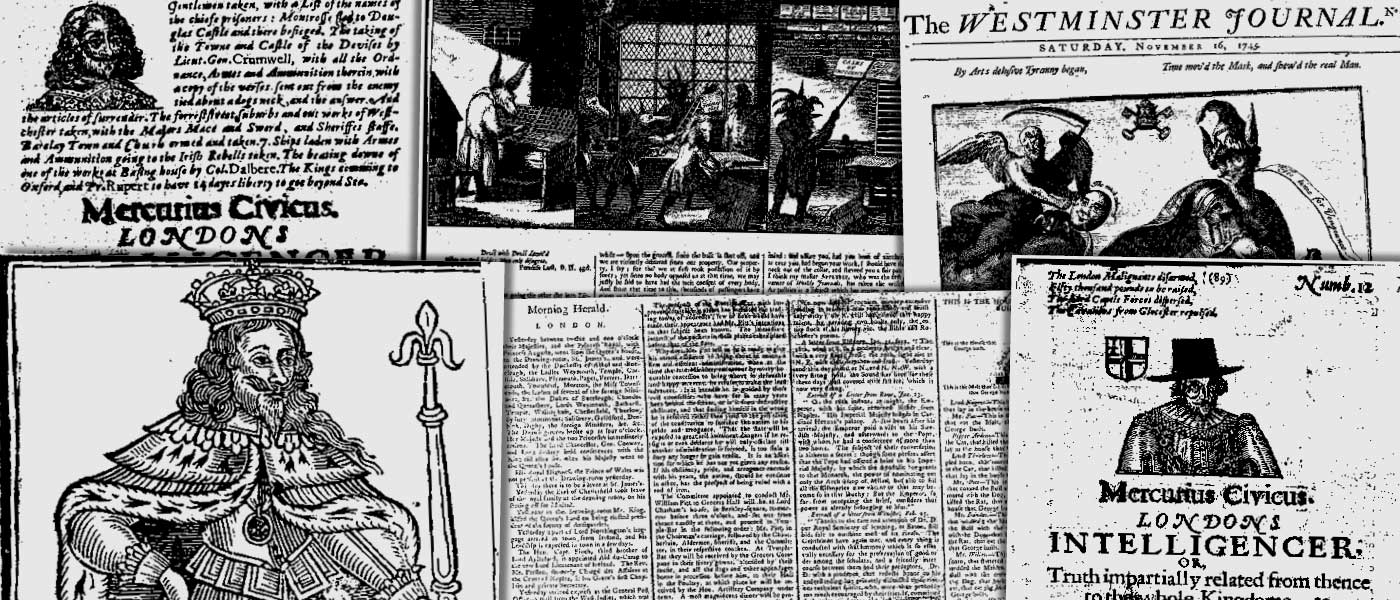The campaign to abolish the British slave trade was one of the most important public debates of the late eighteenth century. References to slavery are thus frequently found in newspapers of the period, and are particularly prominent in newspapers published at the height of the campaign in 1787-92.
References to slavery in mid-eighteenth-century English newspapers are not difficult to find, but are generally marginal. Although slavery is mentioned occasionally in news items, most references occur, often obliquely, in advertisements for colonial estates, colonial produce and, very occasionally, for individual slaves. Shipping news yields a great deal of information on the movements of slave traders and their vessels, particularly in the major slave-trading ports of Bristol, Liverpool and London. There are, however, few outright condemnations of the trade before 1770. The first major abolitionist success, which was widely reported in the newspapers, was the Somerset Case of 1771-72 in which Lord Chief Justice Mansfield ruled that no-one in England had a right 'to take a slave by force to be sold abroad' (State Trials, XX, cols. 1-82). Many newspapers offered detailed reports of court proceedings alongside analysis of the implications of the ruling and commentary on the performance of the lawyers involved. Thus, for the first time, abolitionist arguments were brought to a mass reading public. Breaches of the ruling were also reported. For example, in late May 1773, several newspapers reported the suicide of a slave taken by force in London to be sold abroad. These reports prompted John Bicknell and Thomas Day to write their poem The Dying Negro, which would inspire a generation of abolitionists.
In the decade following the Somerset Case, incidents involving slaves and slave trading gained increased prominence in the news. After the formation of the Society for Effecting the Abolition of the African Slave Trade in May 1787, references to the campaign become common, and newspapers regularly carried advertisements for abolitionist literature as well as some reports of abolitionist meetings. There are occasional book reviews, and abolitionist poetry is found inserted in several papers. For example, William Cowper's famous abolitionist poem 'The Negro's Complaint' was first published in Stuart's Star and Evening Advertiser, on 2 April 1789. Perhaps the most significant development is the intensity with which the slavery debate is conducted through readers' letters and through editorial comment - the latter comparatively rare in the eighteenth century. Both proslavery and antislavery arguments are rehearsed in letters, often published side by side, and while most London newspapers attempted impartiality (with varying degrees of success) a marked proslavery bias is discernible in newspapers such as The Bristol Journal that were published in slave-trading ports.
Parliament began to consider the slave trade in 1788, and the series of debates that took place over the coming years was reported at great length in most London newspapers. Eighteenth-century parliamentary reports are not reliable, and the newspapers offer competing and conflicting accounts that must be approached with caution. Nevertheless, the sheer quantity of space allocated to reporting parliamentary debates about slavery in the years 1789-92 indicates a high level of public interest in the issue. Equally remarkable is the collapse of interest after 1792, when the implications of the French Revolution overshadowed the slavery debate. Although both parliamentary and public debates about slavery continue to be reported, they are not given the same prominence, and the issue remains a minor one until the resurgence in abolitionist sentiment in 1806.

WORKS CITED:
Bicknell, John and Thomas Day, The Dying Negro A Poetical Epistle, Supposed to be written by a Black (Who lately shot himself on board a vessel in the river Thames;) to his intended Wife. London: W. Flexney, 1773
Howell, Thomas, A complete collection of state trials and proceedings for high treason and other misdemeanors from the earliest period to the present time. 26 vols. London: T.C. Hansard, 1814
BIBLIOGRAPHY
Blackburn, Robin, The Overthrow of Colonial Slavery, 1776-1848. London: Verso, 1988. The classic account of the end of colonial slavery.
Brown, Christopher Leslie, Moral Capital: Foundations of British Abolitionism. Chapel Hill: University of North Carolina Press, 2006. The best recent work on the development of abolitionist thought.
Carey, Brycchan, British Abolitionism and the Rhetoric of Sensibility: Writing, Sentiment, and Slavery, 1760-1807. Basingstoke: Palgrave Macmillan, 2005. Contains in-depth analysis of the ways newspapers reported the slavery debate.
Oldfield, J.R., Popular Politics and British Anti-Slavery: The Mobilisation of Public Opinion against the Slave Trade, 1787-1807. Manchester: Manchester University Press, 1995. Extremely useful study of abolitionist campaigning techniques.

CITATION: Carey, Brycchan: "Slavery and Abolition in the English Newspapers." 17th and 18th Century Burney Newspapers Collection. Detroit: Gale, 2007.





